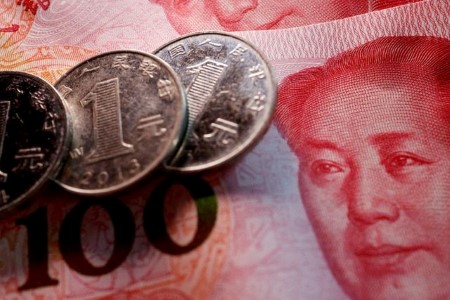




Policy Rate Updates: BSP outlook — cloudy with a chance of rate cut
 DOWNLOAD
DOWNLOAD

January Economic Update: Growth slows, prices rise
 DOWNLOAD
DOWNLOAD

Inflation Update: Up, up, and away?
 DOWNLOAD
DOWNLOAD


China’s sliding yuan could be next ‘black swan event’ for markets, hedge fund EDL says

LONDON, Aug 17 – Hedge fund EDL Capital is betting on further falls for China’s offshore currency and says the yuan’s slide could be the next “black swan event” to rattle world markets, according to an investor presentation this month seen by Reuters.
The US dollar has strengthened roughly 6% against the offshore yuan so far this year and Chinese state banks have been seen selling dollars this week to stem the yuan fall.
Back swan events refer to unexpected developments with far-reaching consequences.
EDL Capital, which manages about USD 1 billion, said factors weighing on the yuan include geopolitical tensions driving Western countries to re-home supply chains that will starve China of foreign investment.
China’s labor market has also grown less competitive versus other Asian countries such as Vietnam and India, while a post-pandemic recovery has sputtered and foreign currency reserves “might be lower than what they are believed to be,” it said.
The hedge fund held a short position in the offshore yuan, the Aug. 2 presentation shows. A way to do this would be via derivatives called options aimed at profiting at certain price levels on dollar strength against yuan weakness, said the presentation, without confirming if EDL is using this strategy.
China, the world’s second-largest economy, is vital to global growth.
An expectation of monetary policy easing in China, juxtaposed with dollar strength, has driven yield differentials between the United States and China to the widest level in 16 years, pressuring the yuan further.
The hedge fund, run by star manager Edouard de Langlade, was up about 8% this year, said the presentation. It is one of the better-performing hedge funds in 2023 that finds trade ideas in macroeconomic signals.
Switzerland-based EDL has made most of its money this year with long positions in Brazilian and Japanese equities and Brazilian rates. Trades on mining, short positions in US equities, and bullish bets on Chinese stocks detracted from fund performance, the presentation showed.
EDL declined to comment when contacted by Reuters.
(Reporting by Nell Mackenzie; Editing by Dhara Ranasinghe and Mark Potter)
This article originally appeared on reuters.com





 By Reuters
By Reuters